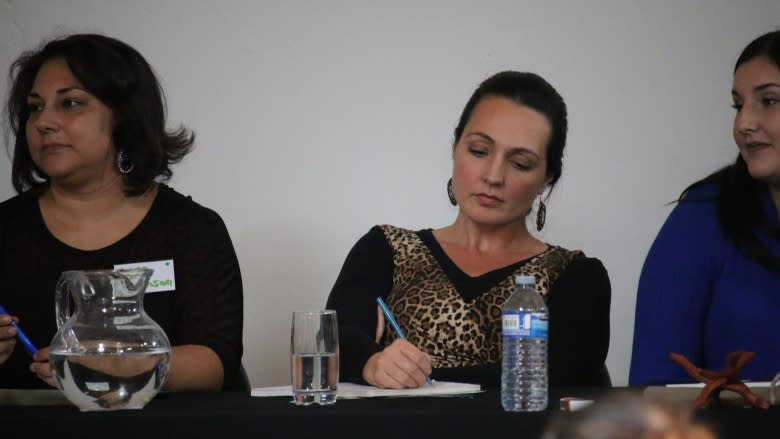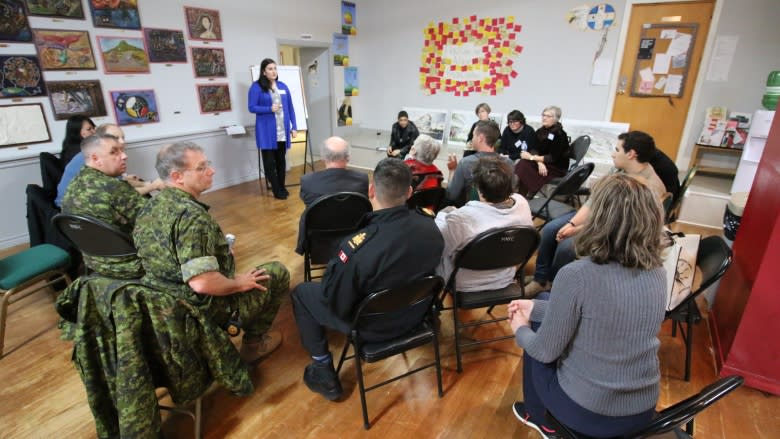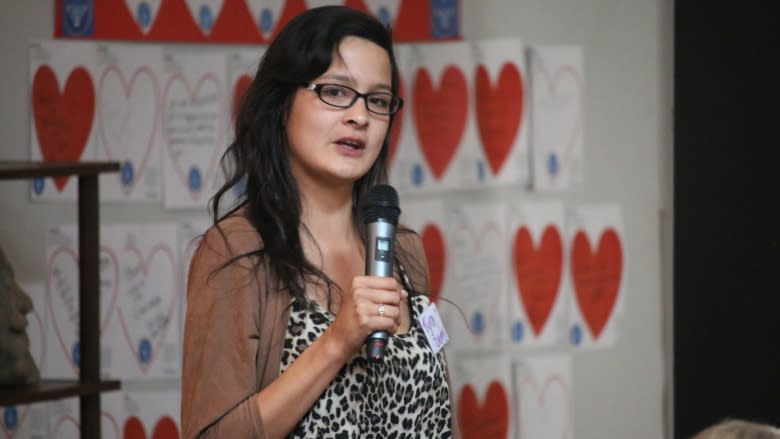Indigenous communities call for 'reconcili-action' 10 years after UN report
A Halifax event marking the 10th anniversary of the United Nations' Declaration on the Rights of Indigenous Peoples sparked motivating discussions on reconciliation and how to achieve it — sooner rather than later.
The declaration, adopted by the United Nations in 2007, is a comprehensive report outlining "individual and collective rights of Indigenous peoples from around the world." It reports on issues like culture, identity and community. When it was originally adopted, Canada voted against the declaration, but formally announced its support in May 2016.
Over 100 people turned out for a panel discussion and workshop at Halifax's Mi'kmaw Native Friendship Centre Wednesday afternoon, co-ordinated by the Nova Scotia Human Rights Commission. A diverse crowd heard commentary from seven Indigenous panelists whose experience ranged from law and education to the lasting effects of residential schools.
Mi'kmaq educator Jude Gerrard spoke about the importance of ensuring the Truth and Reconciliation Commission isn't strictly an "academic" process.
"When I think about the Royal Commission on Aboriginal Peoples back in the early 90s, there was no action from that," he said. "With the TRC coming out, with the calls to action and talking about reconciliation — I think it's time for us to start talking about 'reconcili-action.'"
The Royal Commission on Aboriginal Peoples is a study by the Canadian government completed in 1996. At the time, commissioners called government policies "wrong" and put forth hundreds of recommendations.
Gerrard said they were never acted on. He said Canadians are still living in an era of "systematic oppression," but that education can help to correct that.
"People always talk about how we're post-racial. That [reality] doesn't exist," said Gerrard, "By educating folks on the values of [different cultures] in the school system, I think we can get to a place where we'll move forward together."
Another panelist, Mi'kmaq law scholar Naiomi Metallic, offered a dose of reality in terms of Canada's justice system.
Her discussion outlined the idea that Indigenous people are over-represented in the criminal justice system because of their links to residential schools. Simply put, she said intergenerational trauma can shape people in a way that leads to crime.
Discussions carried on to the importance of changing the federal government's top-down approach to funding for Indigenous communities. Metallic said the underfunding of essential services like social assistance, child welfare, and water and housing infrastructure on reserves are an example of daily human rights abuses.
"How are they going to become functional communities that thrive and embrace self-government if you're thinking about where your next meal is going to be?" she said.
Questions and commentary from those in attendance covered emotional accounts of residential schools survivors and personal battles. A workshop separated the crowd into four groups to discuss and write down challenges on how individuals from every culture can play a role in reconciliation. The activity seemed to stimulate a buzz of passionate conversations.
Tara Denny, a Mi'kmaq woman from Cape Breton, said the event gave her "momentum" to form an educational therapy group.
Just six weeks ago, she said she had no direction and realized she wasn't as resilient to her traumatic past as she'd hoped. Now, Denny said she wants to use her experience as a young Mi'kmaq woman to teach her community's youth about the challenges they may face growing up.
"There's a reason why I'm here today, and that is to help make a difference within our community for the next generation," said Denny.






